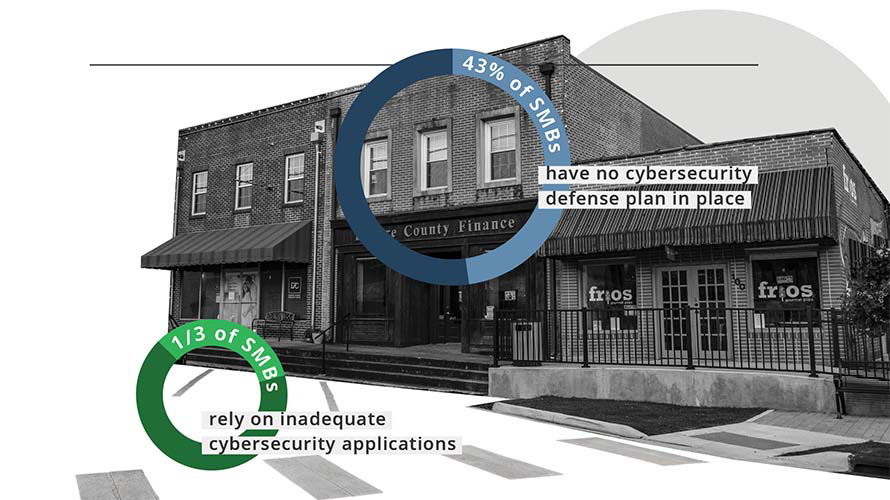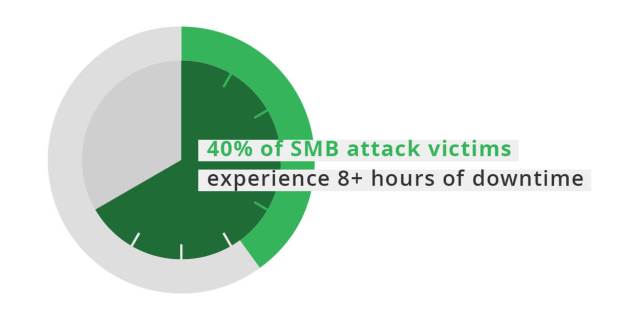Download the Infographic: Why Small Businesses Have to Prioritize Cybersecurity
Hackers Capitalize on Panic
While big companies can survive attacks using their massive financial and legal resources, many small businesses aren’t as fortunate.
Perhaps that’s why attackers are so eager to target small and medium-sized businesses (SMBs) and accounting firms—and why the pandemic gave rise to a new round of attacks.
“Cyber attackers see the pandemic as an opportunity to step up their criminal activities by exploiting the vulnerability of employees working from home and capitalizing on people’s strong interest in coronavirus-related news (e.g. malicious fake coronavirus related websites).” 1
This post walks through the risks small businesses face and demonstrates how devastating an attack can be to a small organization’s very chance of survival.
It also reveals one simple but critical step small businesses (including accounting firms) can take to protect themselves.
The Pace of Cyber Attacks Is Increasing
- Experts expect ransomware attacks to occur at a rate of 5.5 attacks per minute in 2021—almost 8000 attacks per day. 2
- That’s up from 4.3 per minute in 2019 and 1.5 per minute in 2016, an increase of 267 percent in just five years. 2
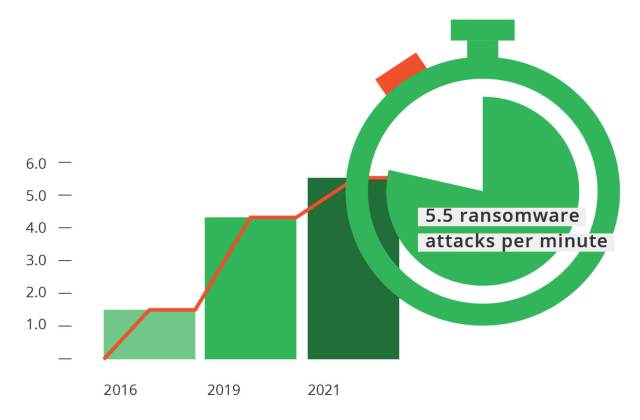
Hackers Have Big Appetites for Small Businesses
- Nearly 50 percent of all cyber attacks are committed against small businesses. 3
- Small businesses are victims of more than 1 in 4 reported security breaches. 4
- Owners of small businesses are more likely to pay ransoms to perpetrators of ransomware attacks than leaders of larger businesses are. 5
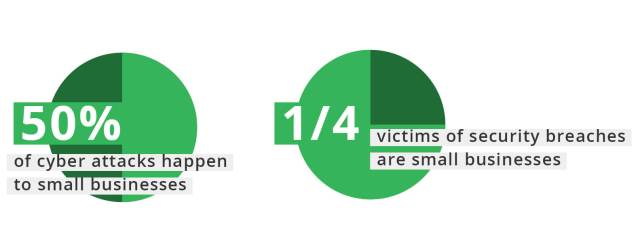
Even Worse, Small Businesses Are Not Prepared
- 43 percent of business owners have no cybersecurity defense plan in place. 6
- One-third of companies with 50 employees or fewer rely only on free, mostly inadequate, cybersecurity applications intended for consumers. 6
- 60 percent of small business owners don’t think their organizations are likely targets for cyber criminals. 6
Limited Resources Make Small Businesses More Vulnerable
- The biggest challenge for 55 percent of small businesses in developing a cybersecurity plan is their lack of resources and knowledge. 7
- 47 percent of respondents to one survey say they have no understanding of how to protect their companies against cyber attacks. 8
- 72 percent of respondents to the same survey said malware—essentially a file that launches an attack—has slipped past their systems for intrusion detection. 8
Cyber Attacks Frequently Shut Down Small Businesses
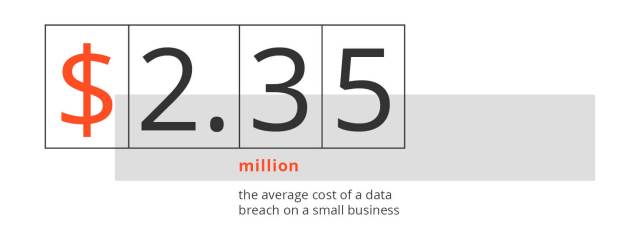
- Each data breach costs a small business $2.35 million on average. 9
- 40 percent of cyber attack victims experienced more than 8 hours of downtime. 5
- The Better Business Bureau estimates that only 35 percent of small businesses could continue to operate profitably for three months or longer if they permanently lost data due to an attack. 7
- The bottom line is: 60 percent of companies that suffer a cyber attack are out of business within six months. 10
Damage Done by Attacks Goes Beyond Financial Losses
- 64 percent of customers said they would cease to work with a company if their personal or financial information were stolen. 11
- Furthermore, 94 percent of those customers would consider taking legal action against the hacked company. 11
How to Prioritize Cybersecurity
Obviously, antivirus systems are a must for all businesses, and there are other applications that can protect email and guard against attacks.
But some cyber attacks can fool even the best protection systems. The average time to identify and contain a data breach is a whopping 280 days. 12
Luckily, cloud hosting provides an affordable solution for small to medium-sized businesses and accounting firms looking to bolster their security measures.
The security team behind the Right Networks Cloud detects threats—before other security systems are even able to recognize them—then neutralizes those threats.
Minimize Threats with Cloud Hosting
So, those 8+ hours of downtime that so many businesses suffer becomes a total non-event. Companies hosting their apps and software in the cloud stay secure and open for business.
Additionally, employees running their software and apps in the cloud gain collaboration and real-time access to their latest files and data from any internet-connected device.
Accessibility freedom doesn’t mean data is less secure. Using the Right Networks Cloud ensures bank-level security precautions are maintained, regardless of an employee’s location when logging in.
Protect profitability, minimize threats and stay in business by moving accounting and business applications to the Right Networks Cloud.
It is the first and most cost-effective measure that small to medium-sized businesses and accounting firms should consider when prioritizing cybersecurity.
Sources
1. https://www2.deloitte.com/ch/en/pages/risk/articles/impact-covid-cybersecurity.html
2. https://www.accountingtoday.com/news/cybersecurity-staying-vigilant-and-safe
3. https://www.entrepreneur.com/article/301193
4. https://enterprise.verizon.com/resources/reports/2020-data-breach-investigations-report.pdf
5. https://www.cisco.com/c/dam/global/hr_hr/solutions/small-business/pdf/small-mighty-threat.pdf
6. https://www.prweb.com/releases/new_study_reveals_one_in_three_smbs_use_free_
consumer_cybersecurity_and_one_in_five_use_no_endpoint_security_at_all/prweb16921507.htm
7. https://www.bbb.org/globalassets/shared/media/state-of-cybersecurity/updates/cybersecurity_final-lowres.pdf
8. https://www.keepersecurity.com/ponemon2020.html
9. https://www.ibm.com/security/digital-assets/cost-data-breach-report/#/pdf
10. https://www.fundera.com/resources/small-business-cyber-security-statistics
11. https://www.cpapracticeadvisor.com/firm-management/article/21122106/why-preventing-data-breaches-should-be-a-top-priority-for-cpa-firms
12. https://securityintelligence.com/posts/whats-new-2020-cost-of-a-data-breach-report/


